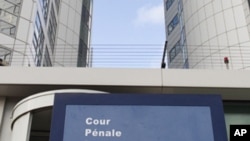The International Criminal Court said it is closely following the situation in Mali and will further examine whether war crimes, crimes against humanity or genocide have been committed.
In a statement Tuesday, the ICC prosecutor's office said it had reports from several sources - including senior United Nations officials - of killings, abductions, rapes and the drafting of child soldiers by various groups in northern Mali.
Facts About Tuareg Uprising
- Ethnically Berber, nomadic people living in West Africa's Sahel and Sahara regions
- Staged multiple uprisings in Mali, Niger for greater autonomy
- Current Mali rebellion began in January after Tuareg fighters returned from Libya where they fought for Gadhafi
- Conflict has driven 100,000 Malians to neighboring countries and internally displaced more than 90,000
- Losses to Tuaregs prompted soldiers' coup in Bamako March 22.
The prosecutor's office said it will decide "in due course" whether to open an investigation.
Renegade soldiers seized power in a March 22 coup, accusing ousted president Amadou Toumani Toure of failing to properly equip the army to handle a Tuareg rebellion in the north.
In their seizure of three northern regions, the Tuaregs fought alongside members of the radical Islamist group Ansar Dine.
The Tuaregs declared the north an independent state but their declaration was rejected by neighboring countries and the African Union.
After the regional bloc ECOWAS imposed harsh sanctions against coup leaders, Mali's military junta agreed to form a transitional government to organize new elections.




